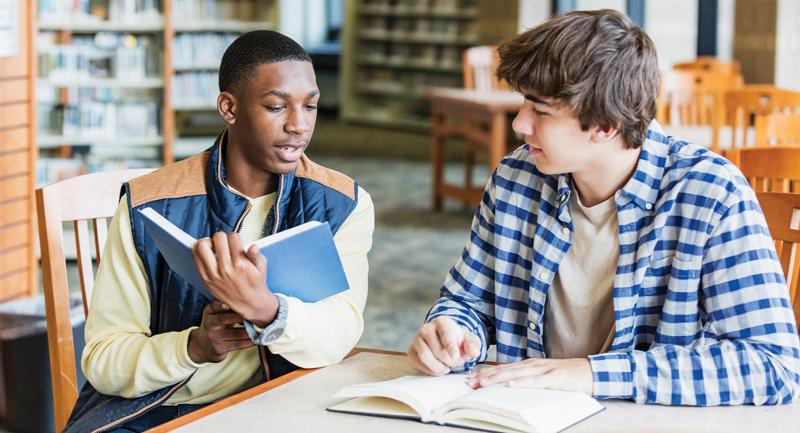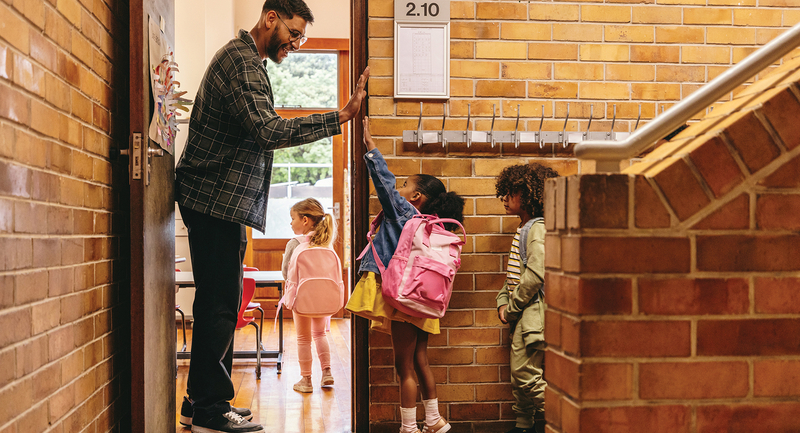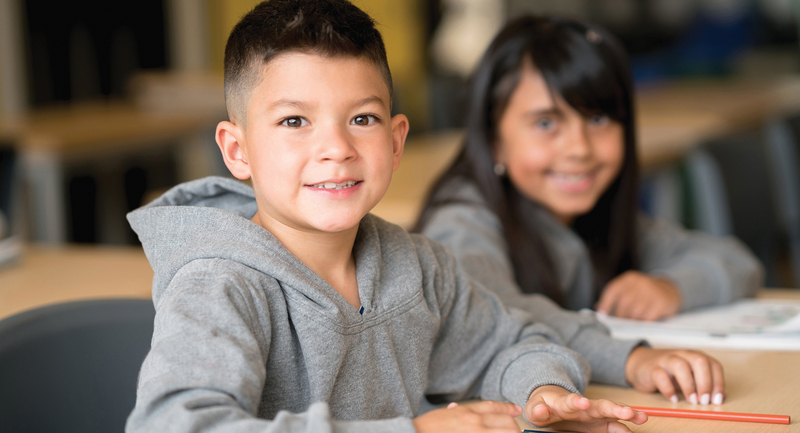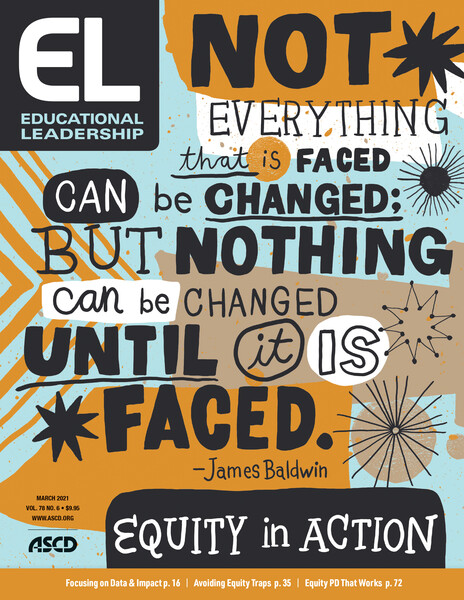March 1, 2021
•
5 min (est.)•
Vol. 78•
No. 6Confronting Inequity / Interrupting the Extremist Pull
Educators have a role to play in helping teens resist white nationalist propaganda.

Premium Resource

I'll always remember one of my last in-person classes before schools were shut down last spring because of COVID-19. My sophomores were about one-third of the way through a unit on Markus Zusak's The Book Thief. We were at the part where the protagonist, Liesel, and her best friend are attending girls' and boys' regiments of the Hitler Youth. In this unit, students were asked to examine and discuss the various ways that extremist groups—both past and present—use propaganda to "groom" students.
For the discussion, students first watched a CNN clip on white supremacists' recruitment of teens and then read the viral Twitter thread that inspired the segment. Posted by an anguished mother named Joanna Schroeder, the thread begins with, "Do you have white teenage sons? Listen up. I've been watching my boy's online behavior & noticed that social media and vloggers are actively laying groundwork in white teens to turn them into alt-right/white supremacists." As she proceeds, Schroeder describes the simple, yet devastatingly effective way this strategy works: First, the boys are "inundated with memes featuring subtly racist, sexist, homophobic, anti-Semitic jokes." When they share these jokes, they are called out by "parents, teachers, kids (mostly girls) at school & online." Then, when they feel a degree of shame about this discretion, they seek community with folks online who rail against hypersensitivity. This new community's "you can't say anything anymore!" narrative turns much of the boys' shame into anger, especially at "women, feminists, liberals, people of color, gay folks, etc. So-called snowflakes." From this new launching point, the leap to more open acceptance of white nationalist ideology is easier to reach.
A funny thing happened during that class. Seeing Schroeder's face on my smartboard over CNN's YouTube description "Mom warns about white supremacists recruiting teens online," one student stage-whispered to his buddy something about "OK Boomer," in reference to this middle age woman, and got a good chuckle in reply. So, obviously, I watched his face as we watched the video. He barely blinked. When the lights came back on, his hand shot right up, "This has happened to me!" He had shared the memes, felt the shame—but thankfully had stopped just short of seeking a sympathetic community online. Thankfully, he had other options. But he wasn't the only one in his class who could bear witness to the strategy.
As we carefully applied Schroeder's lens to the characters in The Book Thief, I couldn't stop thinking about these targeted white boys out there, scrolling through Instagram and TikTok, sharing images of Hitler, making fun of "femenoids" for being "triggered," encouraging peers to take the "redpill" of discrimination, and when they don't, labeling them as "libtards." I thought of how these and other supremacist terms that I did not even know were being used to wedge kids away from beneficial relationships. And to be frank, I did not share Schroeder's optimism that parents merely sitting over young people's shoulders as they scrolled and chatting about what appeared would make much of a difference. To increase the chances of success in protecting kids today from insidious propaganda, well-meaning parents need help from their children's schools.
In my April 2020 column, written right after this class discussion, I described one way that classroom teachers can help combat this process of deepening alienation and infatuation with seemingly supportive hate communities—by heightening the role that deliberation plays in the curriculum. I wrote that it is important that students learn to recognize and appreciate objectively "better" ideas—those that ultimately make more sense, are backed up by better evidence, or are kinder or more humane. And I suggested that our discussion practices should teach students not to be overrun by shame when they are called out for making a mistake. They should just know how to apologize, mean it, make an honest effort to make amends, and move on.
But as I sit to write this in January, only a few days after a white nationalist insurrection in our nation's capital that was inspired by many of the same anti-deliberative stances that Schroeder described, the size and scope of the problem seems much greater. And it is big enough that classroom teachers must do more than examine the role that deliberation (and shame) plays in their pedagogy.
We teachers—and really all adults—must also honestly reflect on how we respond to being checked or admonished. How do we react after making a mistake that is called out publicly, when our best intentions are ignored because of differing interpretations, when our preconceptions are challenged, or even when, in a moment of genuine weakness, we actually meant harm and caused it? Do we, in a fit of pique, try to find a community of teachers that is "less sensitive?" Do we truly understand how such communities—be they in the teachers' lounge, the back of the staff meeting, or on social media—eat away at our ability to be the role models that parents like Schroeder need for their children? When, for instance, a parent points out the systemic inequity in our grading system, do we huddle up with friends and bemoan a coddled, grit-adverse generation? When we are trying to use the most up-to-date, respectful sociocultural labels, and still mess up our words and wound someone, do we slip into the sort of private, professional depression that causes us to internally wash our hands of all this painful equity business?
I hope not. I hope instead that, as we try to turn this stream of troubling national news into powerful learning experiences for our students, we anticipate, accept, and ultimately learn from vigorous critique on both our intentions and their execution. But not only that. I hope that we encourage critiques on what, for too many of us, goes unexamined—our basic people skills. Are we as good at listening as we think we are? Are we as kind? Supportive? Brave?
When both school leaders and teachers model this humility and self-reflection, we become an even clearer counterweight to the extremist communities that await our students on their phones and other screens.
End Notes
•1 Schroeder, J. [@iproposethis] (2019, August 13). Do you have white teenage sons? … [Tweet]. Twitter. https://twitter.com/iproposethis/status/1161130456286289920
•2 Kay, M. R. (2020). Schooled in debate. Educational Leadership, 77(7), 86–87.
•





